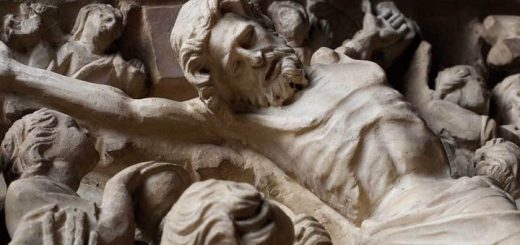The paradoxes of the words of San Paolo and the LGBT people
Biblical reflections of Kittredge Cherry* published on his blog Q Spirit (United States) in August 2018, freely translated by Giacomo Tessaro, part before
Perhaps it was the fight against their homosexual desires in an intolerant society that inspired the apostle Paul those sublime steps of his epistles that speak of unconditional love and inclusiveness, but also those "stumbling blocks" used by the bigots to condemn people LGBTQ.
It is likely that the sense of unworthiness from which he was afflicted, and his appreciation for the grace of God, may have, surprisingly, the same cause: some scholars believe that Paul was a celibate homosexual who tried to reconcile his faith with his own sexuality in a culture that condemned the homoerotic attraction; this could be the “thorn in the flesh” that God did not want to remove him, despite his prayers.
Paolo's paradoxes have always fascinated believers, but also removed many progressive minds. Paolo wrote beautiful meditations on inclusion and mean rules that have brought divisions and turned on sexism, racism and anti -Semitism.
Many LGBTQ people have a love-hatred relationship with Paolo; Often they keep it at a distance, and they are understandably reluctant to consider him a "saint queer", but his influence cannot be denied, and many of his ideas are ideas of freedom.
Paolo's influence is visible everywhere and every day in Christianity, but two days in particular the honor: on January 25, the feast of his conversion (a minor, relatively new holiday), and on June 29, feast of the saints Pietro and Paolo , one of the oldest holidays of the Christian calendar, who commemorates their martyrdom.
The apostle Paul, also known as Saul of Tarsus, is considered one of the main protagonists of western history, and one of the greatest religious figures of all time, according to only to Jesus as regards the influence on Christianity. More than half of the books of the New Testament are attributed to him, and seven of them are considered from his pen.
Perhaps it seems absurd to consider Paul a queer person. The site is asked Gayheroes.com: "Which healthy person would ever think that Saint Paul, the apostle of the Gentiles, whose epistles have been used for centuries by Christians to condemn homosexual people, was he himself gay?".
One of the best known Christian personalities who have talked about this topic is John Shelby Spong, former episcopal bishop. His best seller of 1991 Rescuing the Bible FR Fundamentalism: A Bishop Rethinks The Meaning of Scripture (Save the Bible from fundamentalism. A bishop rethink the meaning of the scriptures) writes: “When I suggest the possibility that Paolo was gay, I don't want to allude to anything itchy or scandalous: there is no evidence that Paul has ever acted based on his homoerotic desires […] I think that a rigidly controlled gay man taught the Church the meaning of God's love. [...]
"In my opinion, nothing else is able to realize the vehemence with which he judges himself, of his negative feelings towards his body, of his feeling of being controlled by something that did not have the power to change. The war between what he wanted with the mind and what he wanted with the body, his tendency to legalism and control, his fear that the system was threatened, his attitude towards women, his refusal to consider Getting married as a remedy for passion: no explanation is more satisfying to explain all this that Paolo was gay ".
* Kittredge Cherry is the founder of theblog Q Spirit. She is a lesbian Christian writer who writes regularly about LGBTQ spirituality. She has degrees in theology, journalism and art history. She is pastor of the Metropolitan Community Churches and has served as a national ecumenical officer; she is currently involved in the National Council of Churches and the World Council of Churches, and fights for LGBT rights.
Original text: Paul the Apostle: Did his homosexuality shape Christianity?






